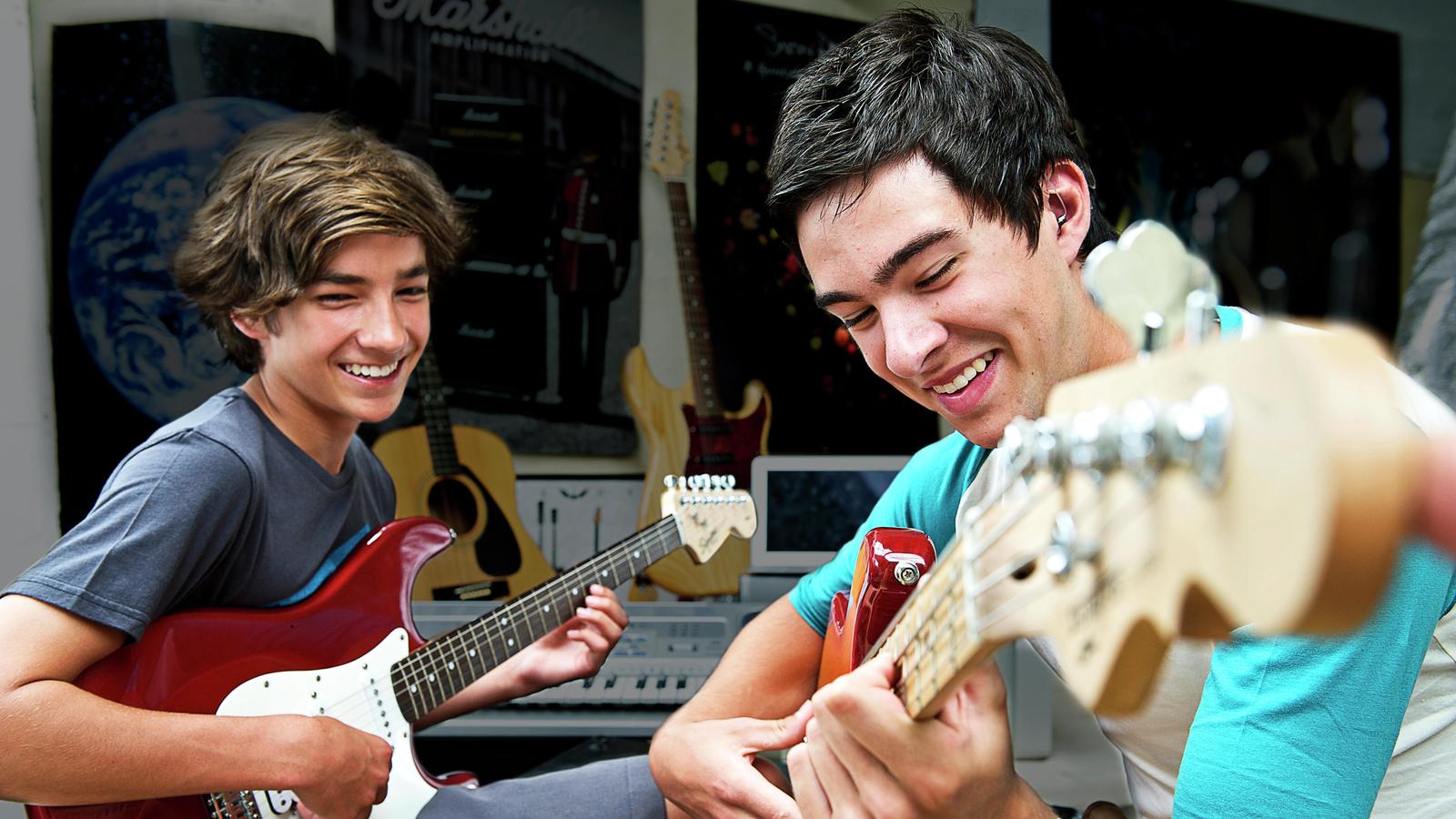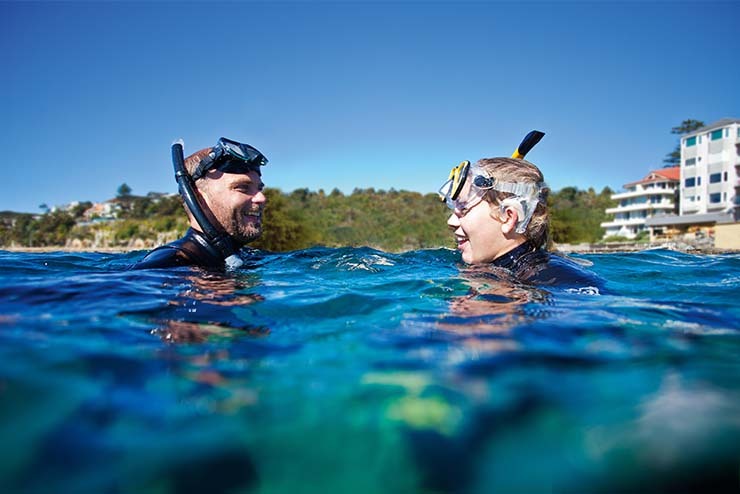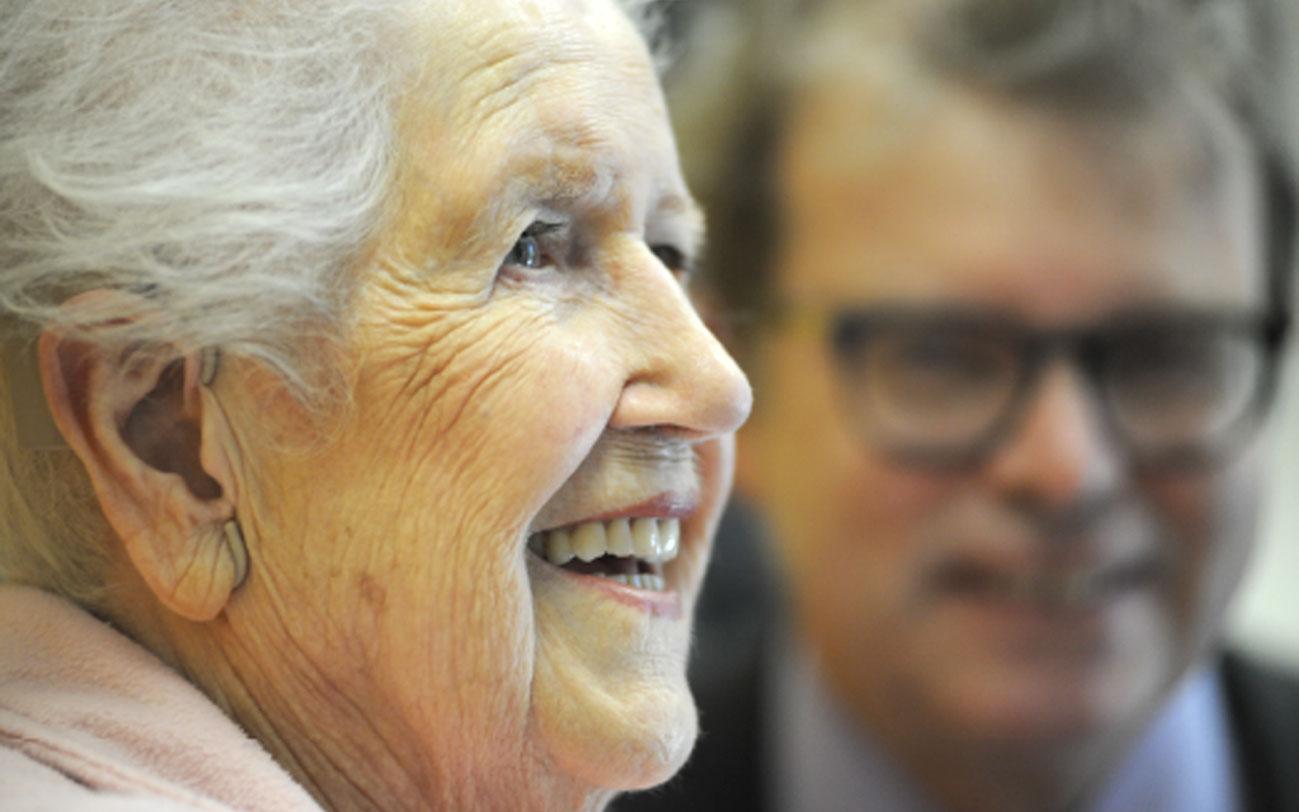Resources for teens and adults
Learning and language skills information, articles and guides to assist teen to adult recipients with different situations.

Raising confident teens
The Raising Confident Teens Toolkit has been developed to help parents and teachers optimise learning in and out of the classroom for children with CochlearTM Implants or Baha® Sound Processors.
This toolkit also aims to cover practical and emotional support strategies parents and teachers can adopt to help build confidence and encourage self-advocacy in teens.
The resources are designed to provide support for children aged 10-16 years old, that may be transitioning from primary school into a high school environment.
Cochlear Confidence Guides:
Raising Confident Teenagers: Support Advice for Teens
Raising Confident Teenagers: Practical Advice for Teacher's
Raising Confident Teenagers: Support Advice for Parents
Raising Confident Teenagers: Practical Advice for Parents
Raising Confident Teenagers: Communication Strategies Rehab Guide
Raising Confident Teenagers: Music Rehab Guide
Raising Confident Teenagers: Phone Rehab Guide
Starting tertiary education and work
The Starting Tertiary Education and Work toolkit is designed to support recipients aged 17 to 21 years old. Contained within the toolkit are strategies recipients and parents can follow to help make the transition from high school to tertiary education or work easier.
There is also support information to help teenage and young adult recipients become resilient and confident adults that continue to advocate for their needs in their workplace or tertiary education institutions.
Practical advice for parents of high school seniors
Practical advice for starting tertiary education
Practical advice for starting work
Starting tertiary education and work communication guide
Adult Recipient Support
The Adult Recipient Support Toolkit is designed to support adult cochlear implant recipients aged 25 years and over. Contained within the toolkit are helpful rehab and listening exercise guides designed to help adult recipients engage with their world and connect with others.
The toolkit also contains practical guides with tips to help support recipients as they seek to explore all of life’s possibilities in the areas of social connection, their career and travel.
Communication strategies guide
Phone and online communication guide
At-home rehab and listening exercise guide
Practical guide for workplace communication
Practical guide for staying socially connected
Adult Cochlear Implant Home-Based Auditory Training Program
The Adult Cochlear Implant Home-Based Auditory Manuals have been designed to provide hands-on material that are flexible and adaptable enough to cover a range of auditory abilities.
Post lingual hearing loss - deafness occurred after spoken language was developed:
DownloadPre lingual hearing loss - deafness occurred before spoken language was developed:
DownloadAdult aural rehabilitation guide - Placement questionnaire
Sometimes there is limited time or a limited number of sessions for an adult's auditory rehabilitation. To create a treatment plan that is efficient and effective, it is useful to determine the recipient's present level of auditory functioning and go from there. This placement questionnaire allows the clinician to establish goals and select activities that are appropriate for the individual needs of each recipient.
Adult aural rehabilitation guide - Placement questionnaire:
DownloadCochlear implant rehabilitation: It's Not Just for Kids!
This guide provides a brief introduction to the topic of aural rehabilitation for adults who have had a cochlear implantation. It discusses the benefits of rehabilitation, the programs available and how to select one to suit your learning style.
Cochlear implant rehabilitation - it's not just for kids guide:
Download

Disclaimer
Please seek advice from your health professional about treatments for hearing loss. Outcomes may vary, and your health professional will advise you about the factors which could affect your outcome. Always follow the directions for use. Not all products are available in all countries. Please contact your local Cochlear representative for product information.
For a full list of Cochlear’s trademarks, please visit our Terms of Use page.
In Australia, Cochlear™ Nucleus® implant systems are intended for the treatment of moderately severe to profound hearing loss.
In Australia, Baha® bone conduction implant systems are intended for the treatment of moderate to profound hearing loss.
In Australia, the Cochlear™ Osia® System is indicated for patients with conductive, mixed hearing loss and single-sided sensorineural deafness (SSD) aged 5 years and above with up to 55 decibels sensorineural hearing loss. Patients should have sufficient bone quality and quantity to support successful implant placement. Surgery is required to use this product. Any surgical procedure carries risk.
For Cochlear™ Nucleus®, Osia® and Baha® systems: This product is not available for purchase by the general public. For information on funding and reimbursement please contact your health care professional.
Any testimonial featured on this website is intended for an Australian audience only.





